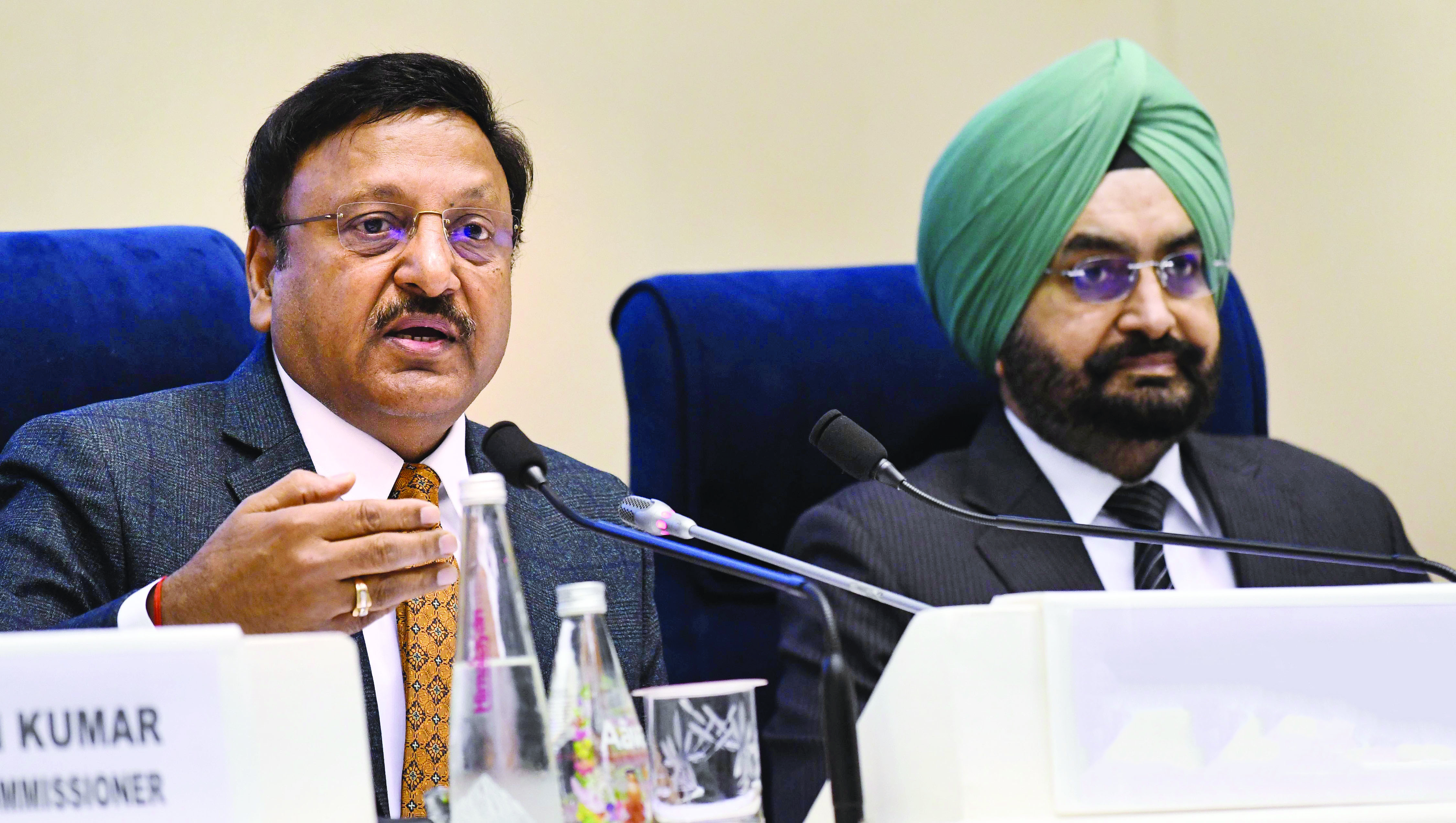Maha to vote on Nov 20, J’khand on Nov 13 & 20

NEW DELHI: The Assembly polls in Maharashtra will be held in a single phase on November 20, while Jharkhand polls will be held in two phases on November 13 and 20, the Election Commission of India announced on Tuesday.
Counting of votes will be taken up for the two states on November 23.
“There are 9.63 crore eligible voters in Maharashtra, while the number of eligible voters in Jharkhand is 2.6 crore,” Chief Election Commissioner Rajiv Kumar said at a press conference here while announcing the poll schedule.
Bypolls will also be held in 48 Assembly seats and two Lok Sabha seats, the CEC said.
Bye-elections to 47 Assembly seats and the Wayanad Lok Sabha seat in Kerala, vacated by Congress leader Rahul Gandhi, will be held on November 13.
Bypolls to the Kedarnath Assembly seat in Uttarakhand and the Nanded Lok Sabha seat in Maharashtra will be held on November 20. Bypolls to the Basirhat Lok Sabha seat in West Bengal and Milkipur in Uttar Pradesh were not announced as election petitions are pending for the two seats.
Kumar said elections will be held in both states on Wednesdays to address the problem of urban apathy.
The BJP aims to retain power in 288-strong Maharashtra Assembly with allies Shiv Sena, led by Chief Minister Eknath Shinde, and the NCP led by Deputy Chief Minister Ajit Pawar.
The BJP-led Mahayuti alliance is facing a challenge from the Maha Vikas Aghadi coalition of the Congress-NCP SP-Shiv Sena UBT, which hopes to repeat its performance in the Lok Sabha elections. The Opposition MVA alliance won 31 of the 48 seats in Maharashtra in the Lok Sabha elections.
The elections will be held in two phases in 81-strong Assembly in Jharkhand this time around as against five in 2019.
In Jharkhand, the Congress is playing second fiddle to the Jharkhand Mukti Morcha (JMM) led by Chief Minister Hemant Soren, while the BJP is looking to stage a comeback.
The CEC also slammed the practice of showing early trends on counting day by news channels as “nonsense”.
During his press conference here, Kumar also said exit polls create a huge distraction by raising expectations and it was a matter for self-introspection for the media, particularly electronic media.
“We do not govern exit polls, but there is a need for self-introspection. What was the sample size, where was the survey done, how did the result come and what is my responsibility if I did not match to that result, are there disclosures – all of these need to be seen,” Kumar said, flanked by two Election Commissioners Gyanesh Kumar and S S Sandhu.
The CEC said associations such as the News Broadcasting and Digital Standards Authority should do some self-regulation.
“Counting happens roughly on the third day after the elections end. Expectations rise from 6 pm, but there is no scientific basis to this in public disclosure,” he said.
“When counting starts, results start coming (in the media) from 8:05 am and 8:10 am. This is nonsense. My counting starts at 8:30 am,” Kumar said, wondering whether the initial trends were shown in the media to justify exit polls.
The CEC said the Election Commission starts putting out trends or results on its website from 9:30 am onwards at two-hour intervals.
Kumar said that a correspondent of a media organisation at counting stations can get results early, but the poll authority has to display the result on the screen, get the polling agents to sign it, and offer justification to observers.
“It may take 30 minutes for the results to come on the official website,” he said.
“So, when the actual results start coming in, there is a mismatch. That mismatch can lead to serious issues sometimes. The gap between expectations and achievements is nothing but frustration,” the CEC said.
Meanwhile, the Opposition in Maharashtra said the 35-day period during which the Assembly elections process will take place is shorter than usual while the poll body gave enough time to the government to announce a slew of schemes.
It also pointed out that elections to the 288-member Maharashtra Assembly, the second largest after Uttar Pradesh (403), will be held in a single phase on November 20, even though this year’s Lok Sabha elections were held in five phases in the state.



